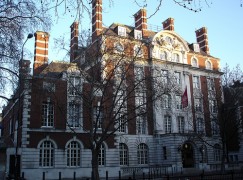Royal Academy denies cancel policy
mainThe institution has issued a rebuttal to yesterday’s Telegraph report that it planned to decolonise ivory instruments and cancel slave-trade composers. Here’s the text.
In response to articles published by The Telegraph on Sunday 23 May, and the Times today, the Academy has issued the following statement:
There are no plans to dispose of instruments from the Academy’s collections. The reviews we will be undertaking are concerned solely with the storage of collections onsite and how we interpret items in our collections.
We will not be disposing of musical instruments based on their provenance or associations. Additionally, the Telegraph article stated that we hold a ‘vast collection of manuscripts by the composer Handel’ – we do not, in fact, own any original manuscripts by Handel.
The Academy has always trained its students for the evolving professional environments of being a musician. It is vital that they understand the cultural, political and socio-economic forces that have shaped musical traditions, as well as the issues that are shaping it in the present, such as the pandemic and questions around equality, diversity and inclusion. This training includes giving voice to figures who have previously been silenced or marginalised, as well as understanding the contexts in which iconic figures such as Handel and Mozart worked. We have not removed Handel, or any other composer, from the syllabus.
For us, inclusion means widening the net, not cancelling historical figures and artefacts.






Comments